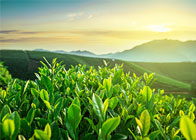According to a new market research report titled “Liquid Botanical Extracts Market by Source (Herbs, Spices, Fruits, Flowers, Roots), Application (Cosmetics, Beverages, Pharmaceuticals, Food), Technology (Solvent Extraction, Cold Pressing, Steam Distillation, Enfleurage) - Global Forecast to 2029”, published by Meticulous Research®, the liquid botanical extracts market is expected to reach $5.25 billion by 2029, at a CAGR of 9.1% during the forecast period 2022 to 2029.
Botanical extracts are directly originated from plants. Liquid botanical extracts are natural products derived from spices, herbs, fruits, flowers, roots, and tea leaves, among others. In the food & beverage industry, botanical extracts modify flavor, aroma, or nutritive quality and extend shelf life. They also support the health, texture, and integrity of skin, hair, and nails and are widely used in cosmetic formulations.
The Impact of COVID-19 on the Liquid Botanical Extracts Market
Each country is working its way out to fight against the pandemic. However, several research studies are finding out the usefulness of medicinal plant extracts against coronavirus. Researchers are working on various medicinal plant extracts to fight COVID-19 throughout the globe. For instance, in February 2020, the Department of Thai Traditional Medicine and Government Pharmaceutical Organization of Thailand signed a memorandum of understanding (MoU) on research into the medicinal plant Andrographis paniculate to develop a drug that can inhibit or defeat the COVID-19 virus.
Moreover, in India, in April 2020, the Jawaharlal Nehru Tropical Botanical Garden and Research Institute (JNTBGRI) received approval from the Indian Council of Medical Research (ICMR) to test whether extraction from plants could be effective in the treatment of this virus. Thus, all ongoing research on medicinal plant extracts as a remedy to COVID-19 is contributing to the market growth of medicinal plant liquid extracts.
Furthermore, liquid extracts from medicinal plants are highly used for treating diseases as they are used in medicines and personal care products, as well as others. Amid the constant fear and panic of the COVID-19 pandemic, consumers are highly concerned about keeping a check on their health which is expected to increase the sales of dietary supplements across the globe. Moreover, consumer shift to plant-derived supplements is influencing the growth of liquid botanical extracts in the pharmaceuticals/healthcare and nutraceuticals products.
However, the worldwide lockdown has also affected the farming practices, which has highly impacted the supply of raw materials of medicinal plant liquid extracts. Moreover, COVID-19 impact on logistics also contributes to the increased prices of raw materials, which ultimately increases the production cost for medicinal plant liquid extracts manufacturers. Thus, the increased raw material prices followed by high demand for herb/medicinal plant liquid extracts would increase the price of plant liquid extracts, especially medicinal plant extracts, for the next few years.











